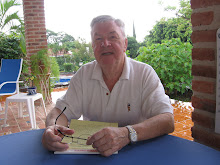852 words.
Conscience is invincible
It sets our priorities
Cannot be subjugated
And must be free.
A law higher than God’s!
By John de Waal, MBA
“The Secular Conscience” by Dr. Austin Dacey, recently published by Prometheus Books of Amherst, New York, is a fascinating, but difficult read. I suspect that it will never reach the broad audiences it should even though the argument in it is important to all of us.
It is about the defense of our freedoms of conscience and thought and it urges that everything, including religion, is debated in the public domain. The need for this is urgent for organized religions are attacking secular values as never before and do not tolerate dissent. However, if not for free conscience, how can anyone really tell what to believe?
The Roman Catholic Church continues to maintain a firm grip on their organization and the production of Church teachings. Modern Evangelicals also demand that the Scriptures be taken literally, not just by their followers, but by everyone else. Islam too insists that their views cannot be tampered with. The twelve cartoons on the Prophet Muhammad, published in Denmark in September 2005, that started Muslim mass demonstrations in Beirut, Pakistan, and Palestine, and burned down the Danish embassy in Damascus are clear attacks on our conscience and our freedom to think. However, the U.S. and British press not only does not acknowledge this, they responded tepidly and even apologized! The cartoon on the right is one of the twelve that so upset Muslims. It depicts Muhammad with a donkey that is loaded with explosives. It does not warrant the violent outbursts.
However, the cartoons do illustrate that there is a connection between the teachings of Muhammad and violence, that Islamic ideology is an inspiration for jihad terrorists like Osama bin Laden, et al. However, Christians have also been committing atrocities in the name of their God for centuries, from the crusades to the inquisition to lynching by the KKK etc.
Islam’s reactions to the cartoons were pure madness and should be denounced as such. We should stand shoulder to shoulder with the Danish to defend our mutual freedoms of speech and thought, and not just to the jihadists and the ayatollahs , but also to the Roman Catholic Church that stated in The Catholic News Service (7/26/07) that “freedom of expression does not mean offending religions” and the right-wing Evangelicals whose actions hurt humanity.
“Why do liberals in the West not speak up and denounce the Catholic ‘gag orders’ and Islam’s capital punishments for apostasy and blasphemy? Why do they not defend our secular values?” The reasons, says Dacey, are based in our privacy- and the liberty fallacies. The first causes liberals to believe that matters of conscience are private and beyond criticism, and the second says that conscience is immune to critical inquiry and our shared evaluative norms.
It is time to reject both these fallacies and open honest, consistent, rational, legal, and moral discussions between religion and secular values in ‘public’: There should be many more editorial opinions and letters to the editor, TV talk' programs, and blogs on the Internet, dealing with the issues, they should penetrate individual dining rooms and office break rooms, reach the houses of worship, and finally local government that can bring about changes that are long overdue.
Our conscience is shaped by reasons that are universal, is independent of/and prior to religion, is part of every human being and enables us to live an ethical life. As long as we try to reach a decision, our conscience is private thing, but when we act on it we are in the public domain.
We live in a pluralistic society and are more alike than unalike. We discuss moral values. Our religious leaders are not the authority on these. President Lincoln made that clear when he was deliberating the emancipation of the slaves when he said: “God’s followers are of many names and tribes, so citizens must appeal to a law higher than God’s if they wish to coexist in peace”. That higher law is the Rule of Conscience!
Ever since Saint Augustine (354 – 430 AD), whose belief that people cannot be good without divine aid, conscience has been suppressed. It remained thus until John Stuart Mill (1806-1873) analyzed the human mind and confirmed that conscience and thought are our own, that only when we act on them must we face the consequences.
To blaspheme is a victimless act and religions cannot simply demand that their critics obey by their orders which are, after all, mere opinions of individuals who claim to speak for their God. Unbelievers typically respect religious people for their convictions and it behooves religious people to return this courtesy.
Let us seriously debate issues of conscience and moral values in public. We may rediscover truths, set human judgment right and we will all be better for that. Let’s debate what is good and what is not and reach an understanding of, and respect for one another’s thoughts in the realization that our conscience is a law that is higher than God’s!
.
Saturday, November 8, 2008
Subscribe to:
Post Comments (Atom)

No comments:
Post a Comment